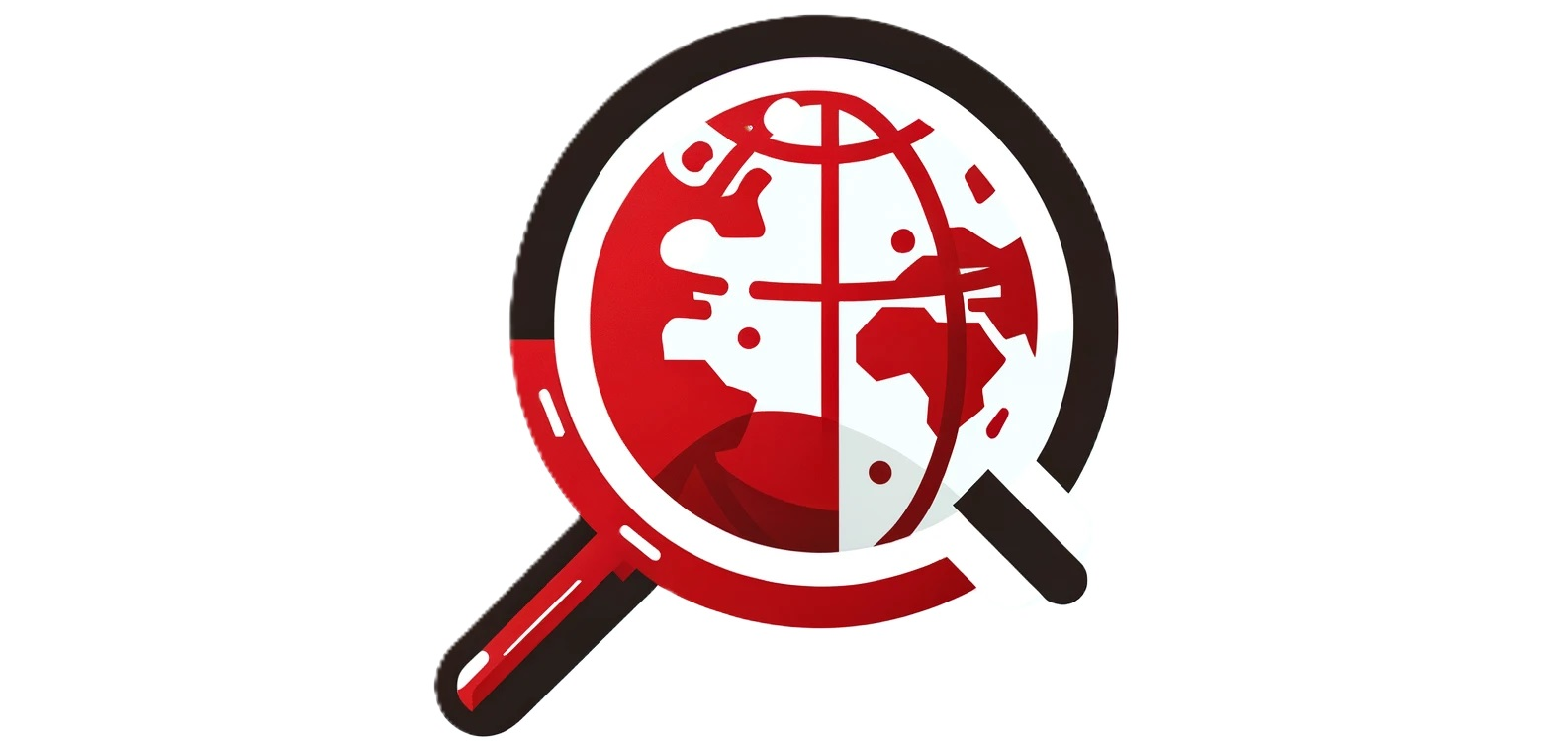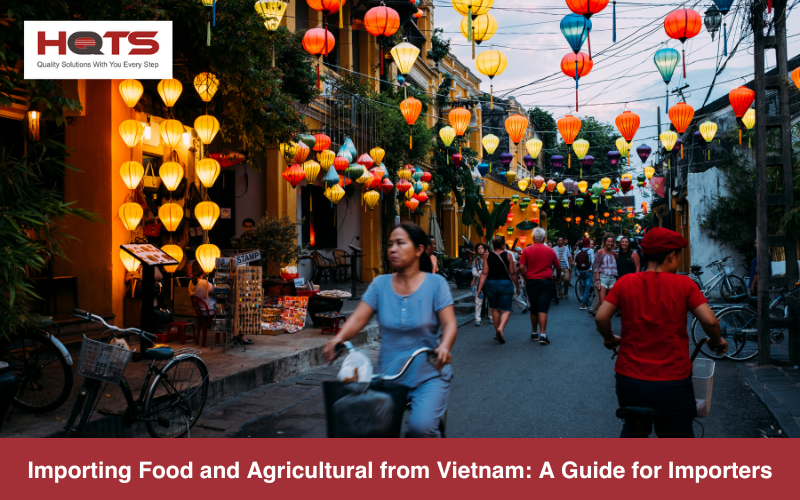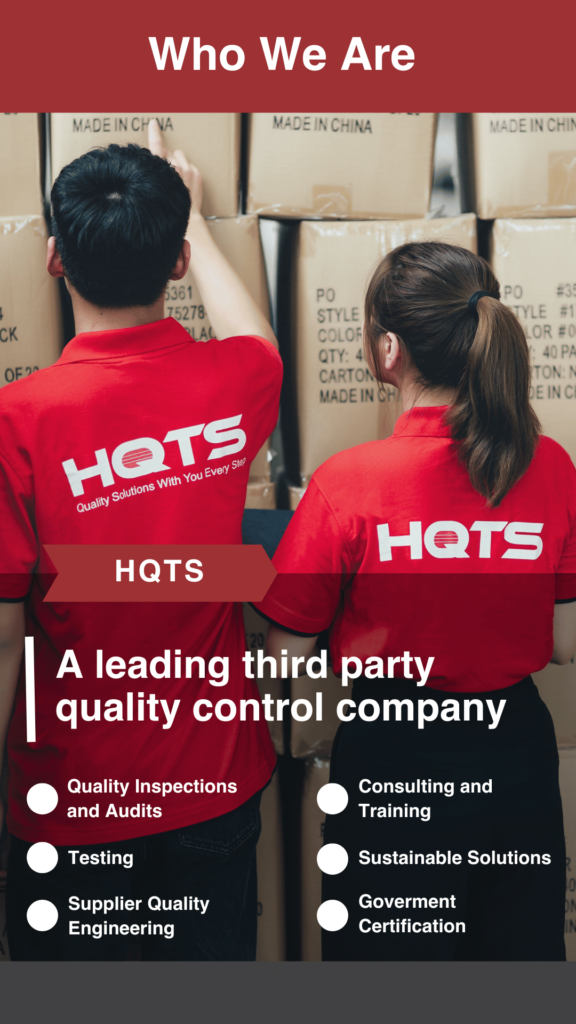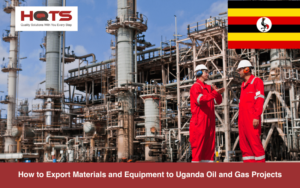Vietnam has become a big player in the food and agricultural products sector in recent years. Vietnam’s agriculture industry stands today as a vital contributor to the country’s economy and workforce.
The country can pride itself on being the second largest exporter of rice and coffee in the world, and coupled with bilateral agreements – including the EU-Vietnam Framework Agreement on Partnership and Cooperation (PCA) and the EU-Vietnam Free Trade Agreement (EVFTA) – there may be plenty of benefits for importers to choose to import food products from Vietnam.
This article will give you a deeper insight into Vietnam’s agriculture sector and current state. Additionally, we will cover the key benefits of sourcing food from Vietnam.
What Food Does Vietnam Export?
Vietnam’s agricultural sector is integral to the nation’s economic and labour landscape. As one of the top two exporters globally of rice and coffee, Vietnam produces a variety of foodstuffs as well as aquacultural products that it exports to other countries.
Recent data from the Vietnam General Statistics Office show that the agricultural sector in the first six months of 2022 increased by 2.31%, forestry by 4.97% and fisheries sectors by 2.31% – all have experienced positive growth in the first half of 2022, indicating a quick recovery after Covid-19 and promising development in 2023.
Top Vietnam food export items include:
- Rice
- Coffee
- Seafood, including shrimp, fish, and squid.
- Fruits and vegetables, a variety of tropical fruits, such as dragon fruit, durian, and rambutan.
- Spices, major exporter of black pepper and cinnamon.
Vietnam also exports processed foods. For example, canned seafood, instant noodles, and confectionery.
What Are the Benefits of Sourcing Food and Agricultural From Vietnam?
Vietnam is a top choice for importing food and agricultural products, offering diverse crops and high-quality produce. In this section, we will take a look at the benefits of sourcing from Vietnam.
1. Free Trade Agreements
Vietnam has established several free-trade agreements with various countries worldwide. For importers from nations with these agreements, sourcing from Vietnam may present a strategic opportunity. Some notable agreements include:
- AFTA: As a member of ASEAN, Vietnam is a part of The ASEAN Free Trade Area (AFTA). This agreement supports trade and manufacturing amongst the member countries, including Vietnam, Singapore, Indonesia, Malaysia, Thailand, Cambodia, Laos, Myanmar, and Brunei.
- EVFTA: EU-Vietnam Free Trade Agreement that became effective in 2020 is another great support as the EU and Vietnam plan to remove 99% of all customs duties.
- CPTPP: The Comprehensive & Progressive Agreement for Trans-Pacific to support Vietnam, Singapore, Malaysia, Brunei, Australia, New Zealand, Canada, Chile, Japan, Mexico, and Peru, effective from 2019.
- IPEF: The agreement Indo-Pacific Economic Framework for Prosperity among America, Australia, New Zealand, Brunei, India, Indonesia, Japan, Korea, Malaysia, Philippines, Singapore, and Vietnam.
2. The Strategic Location Brings Competitive Logistics
Vietnam’s location is highly advantageous for the logistics and supply chain industry, providing multiple options for shipping to other countries by air, road, sea, and rail. There are multiple famous suppliers like Maersk, Gemadept, DHL, UPS, Kuehne + Nagel, Schenker, Expeditors, and many other local companies.
On top of that, Vietnam has 1,900 miles of coastline and 44 international seaports, amongst 320 ports in total, with a total capacity of 470-500 million tons per year, positioning Vietnam as a significant player in global trade. Hence, importing products from Vietnam can be more beneficial in terms of time, means of transport, and cost-effectiveness.
3. Other Competitive Advantages
Labour costs in Vietnam are relatively lower than those of its neighbours (e.g., around one-third of China’s on average), and wages are increasing slowly. Additionally, the labour pool is large, as 56% of the population (98 million) belongs to this group.
- Vietnam’s manufacturing capabilities in food and agriculture have been proven by some global recognitions, such as being the second-biggest exporter of rice and coffee in the world, seventh and fifth in worldwide tea production and exports, respectively, third-largest seafood export, etc
- Vietnam’s rice is mainly exported to Asian and African countries, with the Philippines and China as the top two.
- Vietnam’s main coffee export markets include Europe, the USA, Russia, Japan, and the UK.
- Vietnam’s major seafood export markets are Japan, the USA, and Europe.
How to Find Suppliers in Vietnam
Due to the vast number of diverse food categories, it is very easy to find suppliers in Vietnam. But at the same time quite challenging to identify those that are custom to work with foreign companies.
Most companies have websites for you to contact them. However, not all, or many, medium to large companies in Vietnam can speak English, so communication may be a big roadblock.
Another option to find Vietnam food suppliers that are used to itnternational trade is by going through associations
Here are some typical Vietnam food associations:
- Vietnam Association of Seafood Exporters and Producers
- Vietnam Association of Tea
- Vietnam Food Association
- Vietnam Vegetables Association
Best Practices: Food Quality Control in Vietnam
Once you have a list of potential suppliers, checking their credibility through a supplier audit is always a good practice.
In the wake of Covid-19, food hygiene has become a top product priority. Each country has different regulations depending on the type of imported product. To import from Vietnam, you should check your country’s food safety requirements.
It’s also a good idea to regularly inspect the food products at your suppliers site, to ensure that they’re delivering the right quantity and quality to you. These Vietnam food quality inspection services include: pre production inspection, survey/damage survey, loading supervision/discharging supervision and others.
Conclusion: Benefits of Importing Food and Agricultural Products from Vietnam: A Guide for Importers
Vietnam is a potential destination for sourcing food, agricultural, and aquacultural products. However, finding a decent supplier is difficult, especially when unfamiliar with the local market.
At AQM BD, we have a quality control company Vietnam that can be a trusted third-party to audit your supplier, check the quality of the goods through quality inspections and even testing them for any harmful substances.
Contact us today to get help with quality control services in Vietnam!





